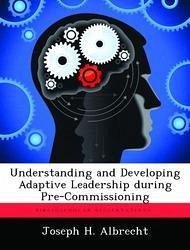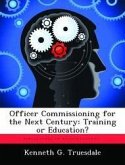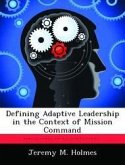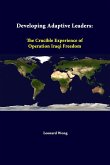In complex operational environments marked by uncertainty, lethal threats, and long term commitments, the Army's junior officers shoulder a burden that requires critical thinking and a willingness to exercise initiative and make decisions. In light of these requirements, the Army demands junior officers demonstrate adaptive leadership. Developing adaptive leadership during pre-commissioning training has challenged the Army's Reserve Officer Training Corps (ROTC) program. While the Army recognizes the importance of training and education to leader development, it historically viewed education and training in dichotomous terms, a counterproductive approach to the design of effective learning interventions during pre-commissioning. Moreover, the Army's long held view that pre-commissioning training should prepare cadets for immediate duty with troops created a tendency for the ROTC to rely on 'industrial-age' approaches, lecture and rote learning, to junior officer development. This paper argues that the Army's ROTC programs adopt experienced-based approaches to leader development to produce the adaptive leaders needed in today's complex operational environment. It posits that experienced-based approaches to leader development, such as the Adaptive Course Model and small group instruction, achieve an effective balance between training and education through experiential learning opportunities in the classroom. This paper explores the Army's historical view of education and training at the pre-commissioning level, the evolution of the Army's desire for adaptive leaders, and the nature of adaptability and adaptive leadership.
Hinweis: Dieser Artikel kann nur an eine deutsche Lieferadresse ausgeliefert werden.
Hinweis: Dieser Artikel kann nur an eine deutsche Lieferadresse ausgeliefert werden.








